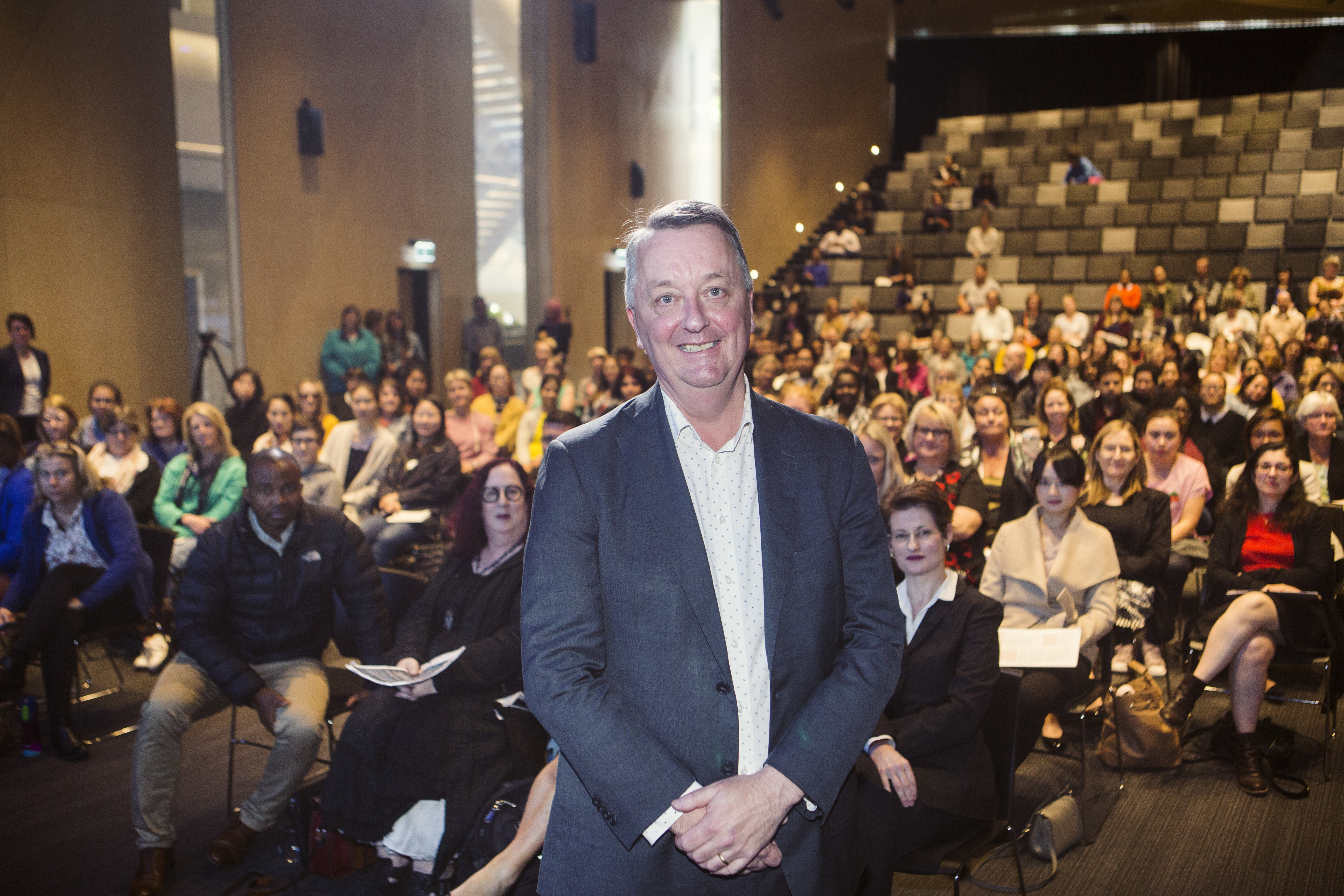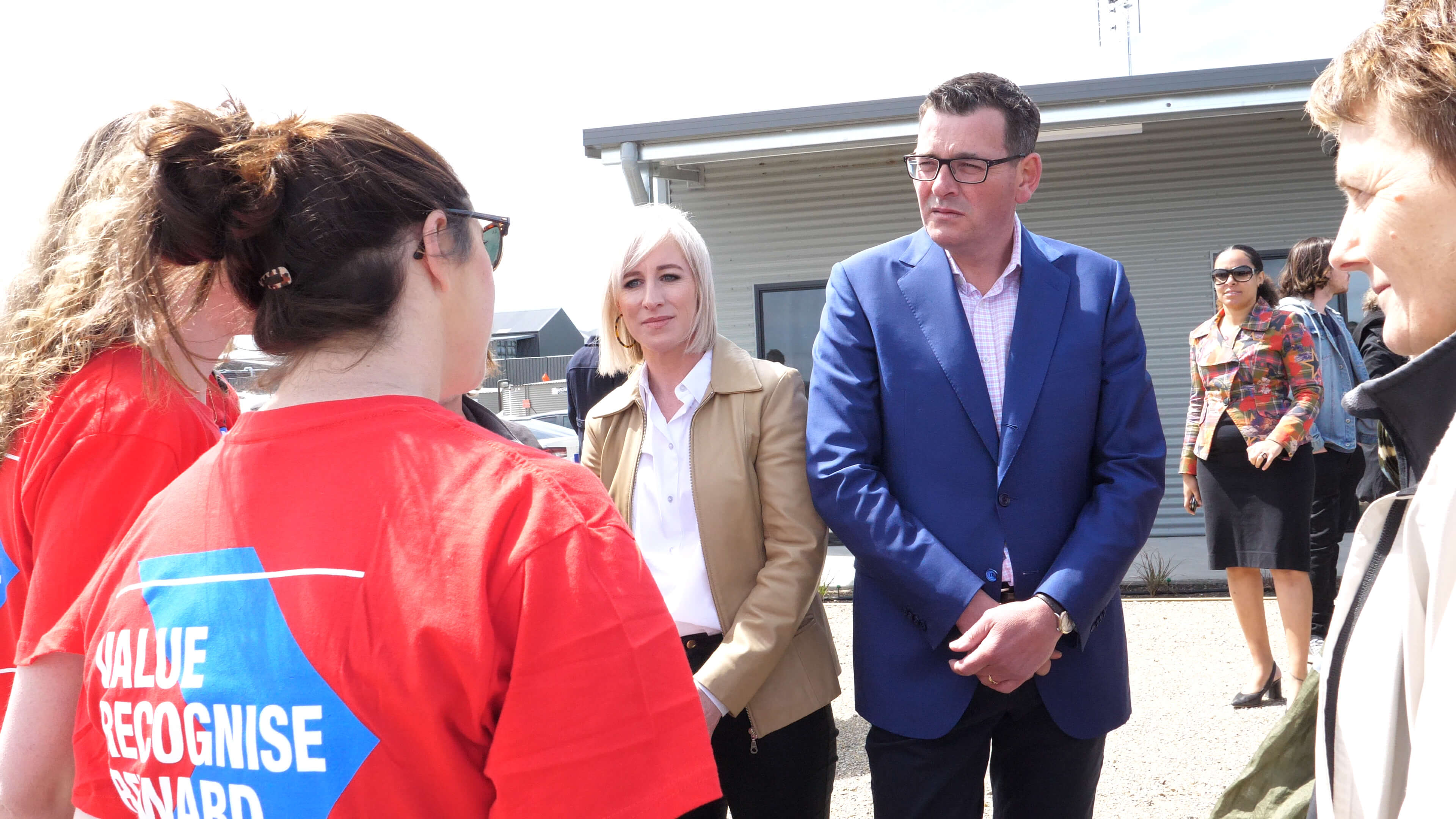
Mental Health Minister Martin Foley at the inaugural 'Alcohol and other drugs information seminar for nurses and midwives'
People with addiction issues need to be treated with ‘care, dignity and respect’ and a health-based response, Mental Health Minister Martin Foley told ANMF members at the inaugural ‘Alcohol and other drugs information seminar for nurses and midwives’.
The Andrews Government’s funding of AOD seminars, presented by ANMF in partnership with Turning Point, were part of its workforce development strategy and an effort to destigmatize alcohol and drug issues, Mr Foley said.
‘We know that at its heart, decades of ‘war on drugs’, ‘just say no’ and attempts to arrest our way out of these issues have fundamentally failed,’ Mr Foley said. Law enforcement and preventing drugs importation are important but addiction is fundamentally a health issue.
Mr Foley said the previous Liberal National Coalition government’s management of the alcohol and other drugs sector had resulted in 25-30 per cent less people receiving drug treatment in some parts of Victoria. Addicts had disappeared from drug rehabilitation programs to reappear in the mental health, homelessness or justice sectors – and many died.
‘It was something of a crisis and over the past four budgets we’ve made consistent efforts to rebuild the sector, undo some of the damage and have increased the AOD budget by 60 per cent,’ Mr Foley said.
He said there were 205 residential rehabilitation beds when the Andrews Government was elected in 2014. By the time, the government’s investment program is complete there would be 450-470. The government’s Ice Action Plan, Drug Rehabilitation Plan and Workforce Development Plan were all part of a coherent strategy.
Mr Foley cited the North Richmond Community Health Centre’s medically supervised injecting room trial as another Andrews Government health-based response to addiction. He said the trial was prompted by 35 heroin users’ overdose deaths in one year – ‘terrible, lonely, miserable deaths in lanes and carparks’.
Having opened in June 2018, the centre was ‘exceeding expectations’ with up to 200 clients per day and at least 140 people saved from potential overdose deaths.
‘The first part of the solution is to keep people alive, keep people in a place where they can engage with services and keep them engaged in a pathway towards recovery.’
Authorised by Lisa Fitzpatrick, Secretary, ANMF (Vic Branch), 535 Elizabeth Street, Melbourne VIC 3000




